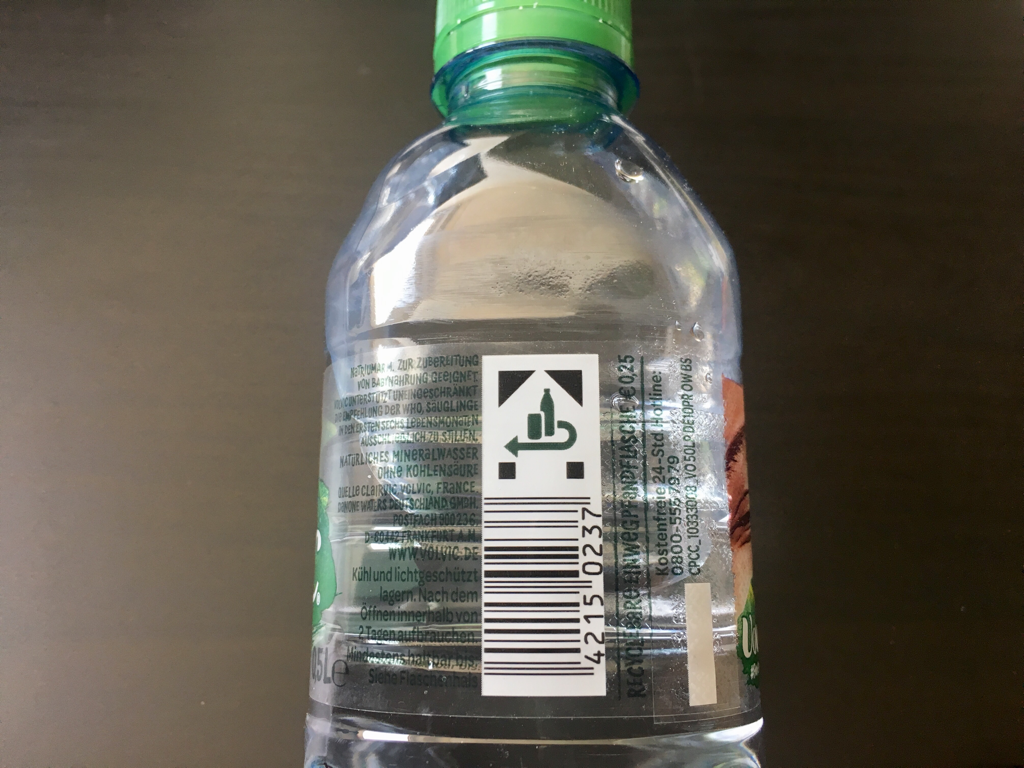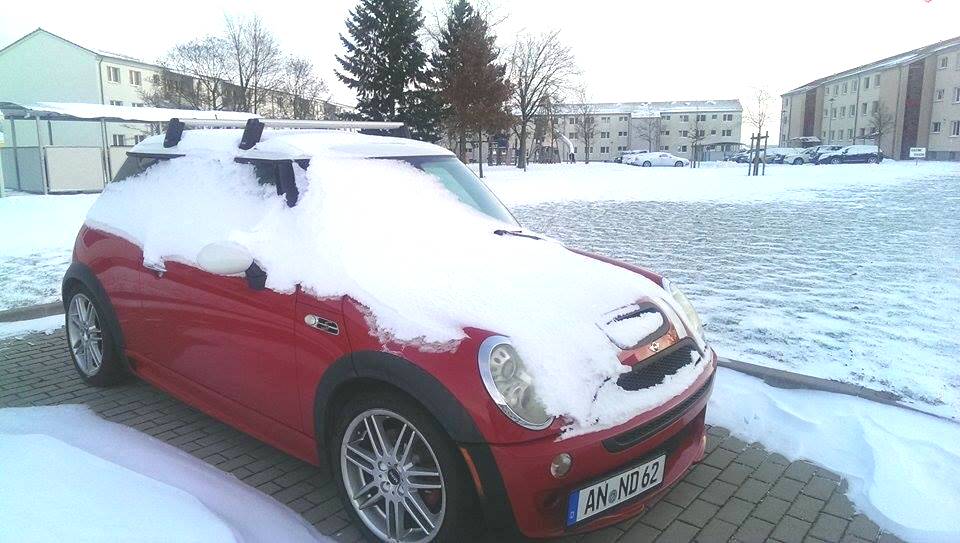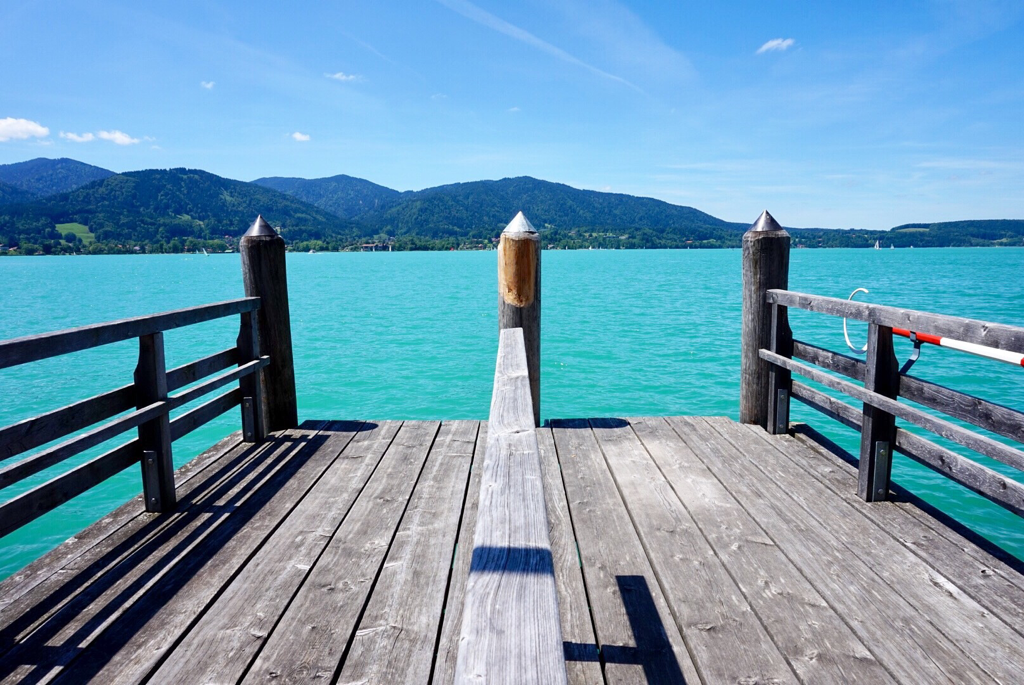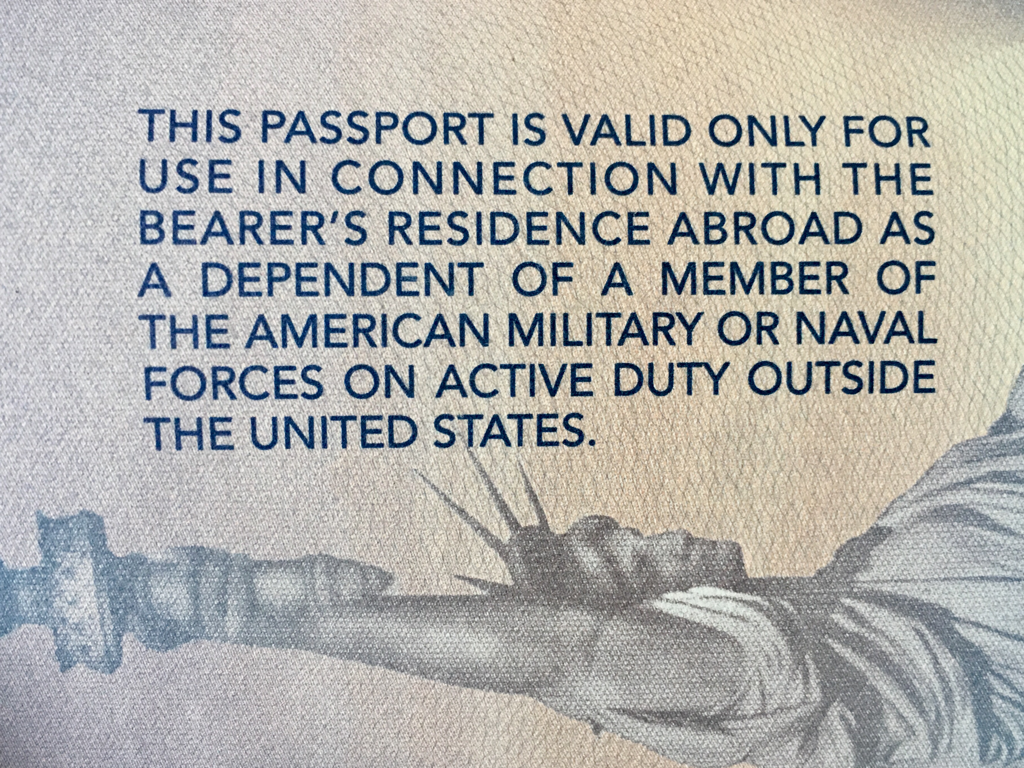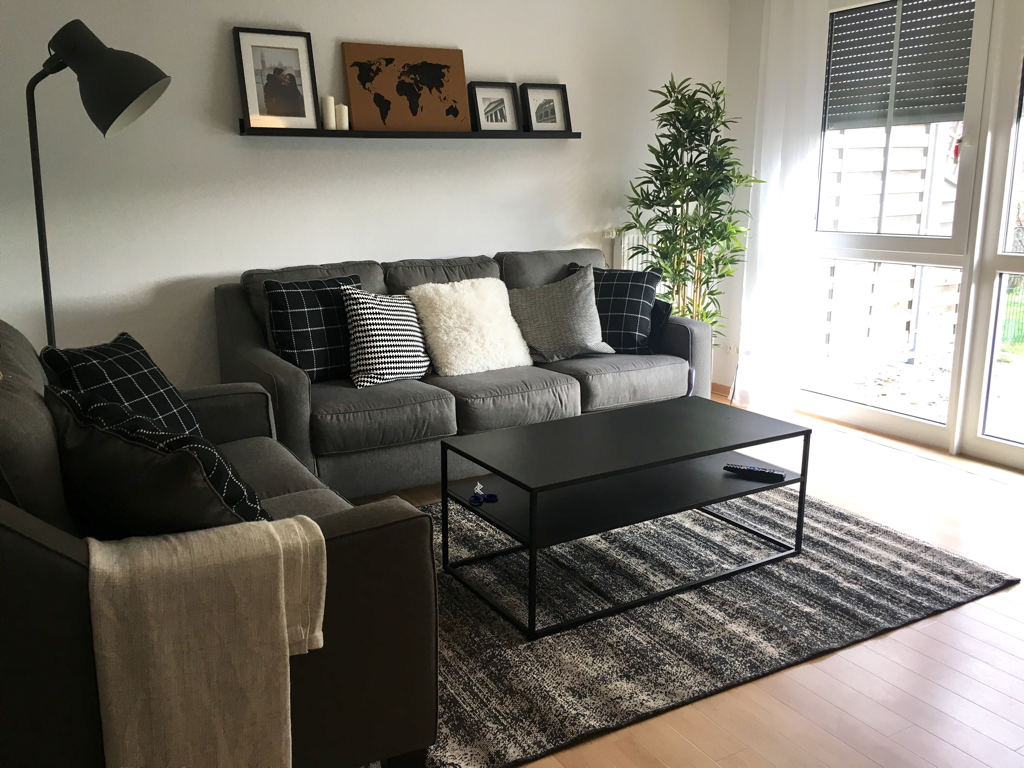|
Too often I hear customers or even my friends say "I wish I knew ____ before moving here to Germany". Had they knew whatever it was that they were hoping to know, they probably could've planned or coped better with a situation. For some, maybe it'll deter them from coming here I suppose. I can completely understand that there are many differences in the lifestyle and culture from the US and living here in Germany. The very first time I heard that I was moving to Germany almost 5 years ago, I had known 9 months in advance so I had plenty of time to research most of the things that I am about to list. But it is very common in the Military that you may not get an assignment or have orders in hand that early and might be rushing last minute leaving little to no time to prepare for your move. Now, I am trying to be as unbiased as possible (I really am trying)! Having only lived in Ansbach and Grafenwoehr, I can only share from my experience being located in Bavaria but I can imagine this could be similar and helpful for anyone stationed around Germany (I would hope so). I also do not have children or have pets (sadly) so finding information about child age schools or veterinarians won't be available here. I would advise joining a Facebook group in the area you are PCSing to for more experience related topics there. This is not an official page, only information based on experiences. As PCS season approaches, here's 100 (yes, one hundred) things you might want to know before you PCS to Germany: Adapting1. You're either going to hate or love the next 2-3+ years here. Choose how you want to see it. Seriously. 2. There is at least a 6+ hour time difference from the States so keep that in mind that when you're waking up here, your friends and family in the States are most likely still asleep. (This is common sense but I really wanted to put this into perspective so you understand the effect of the time difference). 3. I notice a lot of people say they miss home and mention that very often. Flights back to the States, depending on what region of the US you're flying to and which airport you fly out of here can be about $400-$1,000+ round trip and will require in total about 2 days worth of traveling. You can get discounted tickets to go back to the States from SATO, ABC Travel, and USD Travel. There are also discounts for immediate Family members to fly out here. 4. You can also fly Space-A (space available flights from Ramstein AFB) to go back to the States but it does require lots of patience and a back up plan. 5. FaceTime, Skype or Oovoo will be used often to remember who your friends and family are back home and to remind yourself how far you live from them. Food & Groceries6. American food is hard to come by and when you do find it, it won't always taste the same. 7. If you're vegan or vegetarian, those spots will be harder to find here than in the States. 8. When going grocery shopping off post, bring your own recyclable bag or basket to hold your groceries or else you'll pay a small fee for a bag (if you have too many items you can't hold in your hands). 9. If you want to use a shopping cart, be sure to bring coins with you to be able to unlock the cart. 10. While shopping off post, you may notice that most water and soft drinks will come with a deposit, or a pfand. Do not throw away those bottles! You can return them at the store and receive a small deposit back and use it towards your next trip for groceries. Dining Out11. Going out to dinner can take longer than you're used to. The waiter usually will not give you the bill until you ask for it. You could spend hours and they will not mention paying until you tell them. Be sure to say "die Rechnung" or "bezahlen" or you can just ask in English if you're not comfortable yet. 12. Tipping is also different here than from the States. Usually you'll pay 18-20% in the US depending on how well the service is. Here, it's a bit different everywhere you go. Some of my German friends in Bavaria say to round up to the next whole number, some of my friends say a Euro or two, but my friends from Berlin say 10%, especially on high bills. 13. When you're dining at a restaurant, ordering water is usually not free. 14. Speaking of water, if you don't like carbonated water, be sure to tell the server "without gas"/"stilles wasser" or else you'll be drinking carbonated water (maybe you'll end up liking it). If you're at the German store looking for still water, look for "ohne kohlensäure" which is without carbonation. 15. Water and most soft drinks do not come with ice. I've seen some exceptions when you're closer to an American community but more than likely, it won't happen. 16. Free refills are not a thing here, unless you're at the food court on post. So keep in mind that each order of drinks, even if it's just Coke (Cola), you'll pay for each glass. 17. You'll find that at some restaurants, wine or beer will be cheaper than buying bottled water. 18. When the weather is warm, most restaurants will have an outdoor seating area such as a sun terrace (Sonnenterrasse) or beer garden (Biergarten) where smoking is allowed. If you're not a smoker, be sure to sit inside. If you are a smoker, you'll fit right in. 19. I must mention before leaving this topic that beer is a bit stronger here than the beers you drink in the States. Don't let it fool you, especially when you order a maß Bier (1 liter of beer)! Money20. Germany uses the Euro (€) and at the moment, the exchange rate is not that great. So when you're wanting to purchase something and see a price with a €, add at least 20% to that price because that's roughly about how much you'll pay in US dollars. 21. Be sure your bank card and/or credit card does not charge you foreign transaction fees. You can give your bank a copy of your PCS orders before leaving (some banks just need a verbal/written notice that you're in the Military and being stationed overseas) and they will give you more information on how to waive foreign transaction fees, if needed. 22. Cash is key. In the States, you can use your debit or credit card for just about anything but that's not always the case here in Germany, especially in the smaller towns. Don't have the expectation that everywhere accepts cards. Cell Phones23. Most cell phone companies in the States will allow you to suspend your phone line while you are overseas so you can keep your mobile device and just get a German SIM card when you are inprocessing. There are also pre-paid services available. 24. If you get into a phone contract, read into it thoroughly. If it's in German, get it translated so you are not signing anything you don't want to get into. Some contracts mandate that you give them at least a 90 day notice before you PCS and sometimes you won't get orders until a few weeks out. Something to consider if there is not a workaround such as a memo from your Commander. 25. Remind your close friends and family that you'll have a German number once you're on board here so there may be a break in communication for a bit. 26. WhatsApp. Download it. Learning German27. Speaking a little German goes a longgggg way here, I promise! Even if you try and it's not even right. Most Germans appreciate that so much! They might laugh or smile that you tried but it's better to practice and be corrected rather than not know at all. 28. At least learn the German alphabet and pronunciation or else what you want to say may not be understood correctly, may even come off offensively for some. 29. The handwritten number "1" might look like a "7", this can get confusing in the beginning. 30. Dates are also written differently so instead of seeing month/day/year you will see day/month/year so don't confuse the numbers! 31. Most Military posts will offer free [very] basic courses in German. Take up the offer and see if it helps. It's free so what do you have to lose? 32. In the meantime, download Duolingo on your smartphone (also free). What has helped me a lot is a small German Phrasebook. You can also pay for German classes at a volkshochschule which is where adult education takes place. Culture, Tradition, & Lifestyle33. Get to know the etiquette of the area you're moving to. Each region can slightly differ from traditions, culture, and the language. Sort of like in the States when comparing New York City to a small town in the Midwest. 34. No, not everywhere do Germans wear dirndl and lederhosen. That is mostly a Bavarian attire, and even then, you probably won't see this attire unless there is a special event or fest. 35. Most Germans know some English but you cannot entirely assume that they know English or should know English. You'll find that more of the rural towns and elderly people will know very little to no English. 36. On Sundays, most shops, attractions, grocery stores and sometimes restaurants will be closed all day on Sunday's. Be prepared. 37. There is also another ruhetag which is the day of rest. This day is usually when restaurants will take their day off, especially if they are open on Sundays. This day can fluctuate but usually it is on Mondays or even Tuesdays. Other businesses may also use a different day as their ruhetag. 38. Keep in mind there are many German holidays (especially in Bavaria) which means that most stores will be closed on those days and services on post may be limited if the offices are mostly functioning by Local Nationals. Some holidays are also based on the state you're in so be mindful that some holidays are not observed on the same days throughout the country. 39. You might also see a bridge day (Brückentag) where, for example, a holiday falls on a Tuesday so the Monday will also be observed as a holiday to extend the weekend. 40. You'll need to get in the routine of recycling, more than you already are in the States. On post is not entirely enforced but at home, recycling should be happening and items should be (depending on where you live) separated between regular trash, bio, plastics, cardboards, metals, and then glasses (then those glasses are separated by green, clear, and brown). 41. Hate to break it to you but there is no Walmart, Target, Hobby Lobby/Michaels, Trader Joes, Publix, HEB or Best Buy (just to name a few). I also don't know of any "24/7" stores in this country so hopefully that's not too much of a big deal for you. (Apparently it's a huge deal for a lot of people here). 42. Not all Germans are rude and "cold". That may be something you have heard but we've met plenty of locals here who were more hospitable than those from my own country! Meeting someone who is rude can happen anywhere, not just here. Don't take it personally. 43. You will most likely stand out and look like a foreigner to Germans. If you do not look like them, you might get "the stare". My husband and I get it quite often but learned to ignore it or just smile at them while they're staring. Again, don't take it personally. 44. Demonstrations are a thing here, they're usually peaceful and are not violent but they could be sometimes. Try to stay away from them if you run into it and remain vigilant. 45. Personal hygiene may mean something different to everyone here. Sometimes you'll find yourself on a packed train coming from a fest and it might smell very... sweaty. Just sayin'. 46. Speaking of smells, if you're not from a farm town, you might want to get used to smelling cow manure in the warmer months. 47. You're going to run into bees. Don't kill them. Even if they do ruin your beer that you were so excited to drink. *sigh* 48. If you're ever referred off post to German hospital, understand that things are done differently here than in the States. Everyone's experience is different but I can definitely say my experience in a German hospital was handled very differently when I had surgery, not in a bad way, just differently. 49. You might run into the nudity thing here. I know it might not be something you're used to but if you're going to a spa or even to the beaches in Northern Germany, don't be surprised when you see nudity. 50. Since we are on the topic of nudity, well, er - just know that in some restrooms in restaurants, clubs, and airports, you may see a vending machine for your "personal necessities" ... Sometimes there's lingerie, other times there are adult toys. Don't be alarmed... 51. Once you are inprocessing, you will receive your mailing address which will be a box number to your Community Mail Room (CMR). Your mailing address will look like this: CMR __ Box ____, APO AE _____. There are restrictions to what you can and cannot send and mail through the CMR. 52. Amazon Prime 2 day delivery does not apply to your CMR. Don't rely on each and every single date that you are given from companies from the US when they give you an estimated date of delivery. Since the mail has to go through customs, it will take longer to receive your goods (and longer to send out). 53. You will also have a German physical address where you can receive mail to. Amazon.de is really great, just going to put that out there. It may be a bit different if you live on post because some postal services do not have installation passes and cannot come on post. Arrangements can be made but it can sometimes be difficult. 54. Addresses are written in a different order than in the States. In Germany, the street name is written first followed by the house number on the first line. The second line will start off with the zip code followed by the town/city. Spousal Employment55. If you're a spouse: it is true that it can be difficult to find a job. One of the reasons being is because within the SOFA agreement, there is a high percentage of Local Nationals (LN) who can fill positions on post. So yes, your chances of getting a job here versus back in the States is significantly lower, especially in certain fields. But there are opportunities, classes, and tools that are offered to assist in finding a job. The job may not be what you want or a job that you have spent years studying for. If this is a deal breaker, you might want to reconsider your options if you have any. 56. The main source of jobs on post are at USAjobs.gov and you can apply for jobs in the local commuting area 30 days out from the report date. Don't forget to use Spousal Preference for full-time permanent jobs and upload your spouses PCS orders with your online application. 57. Volunteering can be a great way to network and be able to find out first what positions are opening up in your field. Weather58. More times than not, the sun will not be shining. You can expect plenty of gloomy and cloudy days. You may want to think about Vitamin D supplements. I've seem people go as far as buying certain lights in their home because of the lack of natural sunlight. 59. In the Winter, the sun can go down as early as 4pm whereas during the Summer the sun won't go down until 9:30pm. 60. Depending on what's cold for you, the temperatures don't consistently become warm until May and ends around late August/September. But I must say, the weather here can be unpredictable. One early October it was in the low 70s and one April it was still snowing. This also depends what area of Germany you will be. 61. Although not everyone really needs one, you might want to look into getting an air conditioning unit or multiple fans once you're here. Driving62. If you are wanting to drive a car here in Germany, you must have you a USAREUR driving license which you can take the test for once you arrive. 63. Driving on the autobahn can be scary but is actually safer than driving in the States. Follow the signs and rules and you'll be good. 64. It is true that most of the autobahn has no speed limit and as I mentioned, it's safer here but when there IS an accident, it can cause a stau and it can delay your journey significantly, I'm talking hours. Some of them get so bad that people will shut their car off and hang outside their car to talk to their fellow drivers or have a smoke/bathroom break. I've seen people walk their dogs... It's no joke sometimes. 65. Speaking of driving, instead of signs being in miles per hour (mph) they will be on kilometers per hour (km/h). Germany uses the metric system so you won't see Fahrenheit, Pounds, or Ounces. Instead you'll see Celsius, Kilograms (kg), and Milliliters(mL)/Liters respectively. 66. If you ever need to rent a car here, be mindful that most cars here come standard (stick shift), the cheapest cars are in manual transmission. You will have to pay a bit more for the automatic cars. Some places might not even have automatic cars at the moment you're booking (I ended up learning how to drive stick at Enterprise because there were no automatics). 67. As long as you are driving within Germany and have a valid ESSO card registered for the car you're driving, you will be eligible to receive the average US gas price instead of the economy prices which are definitely more than US prices. 68. You'll notice that not all drivers here in Germany abide by the set speed limit. If you are one of those drivers and are "flashed" by a light, there might be a speeding ticket on its way to your Commander or your CMR box. Usually it takes about 2+ months to receive it but sometimes you might not even get it. 69. Your USAREUR license can indeed be suspended. Don't think because you're overseas that you don't have to abide by the law. 70. By law, you cannot idle your car, even in the cold wintery mornings. I've seen people still do it, but just sayin'. 71. There is a good rule of thumb used here for driving tires. From October to Easter (Von Oktober bis Ostern), it's recommended to change your summer tires to snow tires. You can have all weather tires but personally, I do not think all season tires are good enough in wintery/icy conditions, I can testify in my experiences as to why. 72. This is more pedestrian fact than driving but you could be fined for crossing a pedestrian walkway when the "little man" is red and not green. Just wait for the green light and then cross the street, especially if there are children nearby! 73. Another pedestrian fact - stay out of the bike lane! Pay attention to where you're walking at or you might have some angry bicyclists ringing their bells at you, or may even run into you. 74. The preferred mode of transportation here is riding a bicycle. Even in the rain, most locals will still ride, I've even seen people ride their bikes while it was lightly snowing! Next would be taking the train or tram to where you need to get to which is pretty easy to get around with. Travel & Passports75. If you plan to travel outside of Germany, everyone in your family (if you're coming accompanied), including yourself, must obtain a Tourist (fee) passport. (Do not let your local passport office tell you otherwise, I promise you). 76. If you don't have tourist passport upon arrival, it's safe to just travel within Germany until you get the right passports to leave the country. There's plenty to do and see within Germany anyway! 77. Depending on how you travel and how many people are in your family (if you're coming accompanied), traveling can get expensive. But there are ways you can minimize your expenses and help you be able to travel often if your finances allow it. 78. You will hear the word "SOFA" often, it's an acronym which stands for Status of Forces Agreement. This agreement is made of many terms under which Germany and the US settled on. 79. Active Duty Military Dependents who are Command Sponsored will likely receive the Military "No Fee" passport which looks exactly the same as a regular Tourist (Fee) passport except there is a SOFA stamp (usually can be found on page 7, 8, or 9) and there is a statement on the last page of the passport stating the purpose of that passport which is only to be used in connection to the bearer's host country (Germany) and the USA. 80. Some Military Dependents may be eligible to fly into Germany with a valid passport and upon arrival receive a SOFA card in their Tourist (Fee) passport at their servicing Military passport office. Please contact your overseas Military Passport Office for more information. 81. If you have a baby here, you do not automatically get a birth certificate and passport for the newborn. There is a process called Report of Birth which can be a detailed and lengthy process to transfer citizenship from at least one parent who has US citizenship (certain laws apply). If you have a baby born in Germany, contact your local Military passport office to set up an appointment. 82. When traveling, even within Germany to a nearby town, you'll notice that if you're not at a restaurant, hotel, or airport, you will most likely have to pay to use the restroom (usually somewhere around .50 cents to a 1 Euro). Some gas stations make you pay first, some just make you carry a weird key, some just let you in. If you're at a festival, you will most likely have to pay to use the restroom and wait in long lines so like I said earlier, cash is key! 83. Get familiar with budget airlines such as RyanAir, Easyjet, and WizzAir. They are budget airlines for a reason so they do not have the amenities as most major airlines. You will have to pay to choose your seat (free if allocated for you), you do not get complimentary in flight drink service, you'll have less leg room, and strict baggage size limits for most budget airlines. Finances84. If you haven't arrived yet, take a couple of months to put money aside (if you haven't started already) to possibly pay for moving expenses out of pocket. Especially if you are PCSing during peak season in the Summer, receiving reimbursements and settlements may take longer than expected. 85. You will receive a Cost of Living Allowance (COLA) which is not a fixed rate, but is a supplement and fluctuates each month. Do not rely on this allowance because it can change. Housing86. Every base has different procedures but for the most part, if you are lower/junior Enlisted, you will most likely live in government-leased quarters or in stairwell. The criteria will depend on the rank, family size, and the Housing office of your overseas duty station in Germany. 87. You might live in private-leased housing. Keep in mind that when looking for a new place to live, the house might not include a stove or refrigerator. This is because most Germans move with their kitchen leaving the new tenants having to have their own kitchen setup. 88. If you're in Government-leased housing ,you'll likely have both 110v and 220v electrical sockets. Understand the difference and see if your appliances will work and not be damaged. If your house does not support 110v, you'll likely have to buy a transformer or several transformers to support the voltage on certain appliances. 89. It's recommend to leave your washer and dryer in Non Temporary Storage instead of bringing it here. Most of the outlets will not be compatible with those appliances. 90. If you're assigned to have a Sponsor before arriving here, be sure you both are in good communication. I understand that's not always the case, it has happened to us the first time we were stationed here. Be sure you (and your family if they're coming) have a place to stay once you arrive. Either a barracks room assigned to you or a hotel reservation. Also mention if you have any pets. 91. If you're PCSing here in the Summer, don't be too upset that you might be on the waiting list for a long time. Once you get housing, you won't have air conditioning or cable/internet right away and might just want to go back to the hotel if they had air conditioning and internet. Now, I'm sure PCSing with pets or even a large family, you'll probably want to take the house first! 92. Sometimes getting your internet set up in your house could take weeks, maybe even over a month. And comparable to the States, internet here is no where near as fast. Not a problem for everyone, but for some it may. 93. You will experience dryer skin due to the hard water here in Germany. Look into buying a shower head water softener. 94. Some subscription TV services such as Hulu and Netflix may differ than the States. I for one have the German Netflix which has shows in English but also some series and movies in German. I don't even have Hulu anymore because I can't get it without having a VPN blocker. POV & HHG95. Expect your household goods (HHG) and car shipment to take about 2 months to get here. It could take less or more time. 96. Damage to your property can likely happen. Be sure to make your claims no matter how small the damage is and even if you don't have receipts but that does help. 97. Since you're only allowed to have one car paid to be shipped here, most families buy a cheap $1,000-$2,000 beater to get around and sell it before they PCS back to the States. VAT Forms98. VAT (Value Added Tax) is the tax included in the prices you see while shopping on the economy. In the States, you're used to seeing the price and having to add a certain percentage of tax based on the state you're purchasing from. Here, the tax is included in the price so the VAT forms will reduce the tax from the price you see. Not all retailers accept VAT forms so it is best to ask before your purchase. 99. You can stop at your local VAT office to register and purchase VAT forms by different categories based on the price of the purchase. You can only purchase 10 VAT forms at a time. Once you return the VAT office copy, you can purchase another one. Or, you can use up all ten, turn those in and purchase another 10. 100. Some retailers may let you bring in multiple receipts used within a 30 day period to accumulate tax relief. This helps you save as you will pay for just one VAT form ($5) to eliminate taxes on a group of purchases. Did you think this was helpful? Shoot me a message if there's anything else you may want to know about PCSing to Germany!
8 Comments
Paola
5/1/2018 11:36:06 am
Bruh, if I were PCSing this would come in handy! I enjoyed reading this! Thank you for sharing ❤️
Reply
Iris
5/9/2018 06:35:35 pm
Thank you. Great info.
Reply
Ada Diaz
5/10/2018 04:13:45 am
Thank Iris! Glad this could help :) 5/1/2018 03:58:49 pm
I enjoyed reading your post. You were spot on with so many things. I have been living here for 2 yrs and love it. Keep an open mind and embrace the adventures! Getting involved in activities, (cooking class, German language classes) helps with meeting new friends.
Reply
Ada Diaz
5/10/2018 04:15:51 am
Exactly! I hope this can help many people understand more of what it's like to actually be here and maybe this could ease their minds or maybe even change their minds if it's not something they're interested in!
Reply
Kat
5/1/2018 03:59:43 pm
Regarding 59: a lot of folks don't realize how far north Germany is. Think Canadian Border.
Reply
Ada Diaz
5/10/2018 04:14:42 am
This is so true! I for one did not take that into account and was thrown off a bit!
Reply
Zee Marie
5/12/2018 06:09:49 pm
Thank you so much for this post! I’m moving to Bavaria soon and this was helpful.
Reply
Your comment will be posted after it is approved.
Leave a Reply. |
Photos used under Creative Commons from cody_der_fotomeister, alex_tiger87, mypubliclands, crosathorian, Quad Dimensional Pictures, Piero Annoni - Fotografo, Michael Panse, jyl4032, fcam, rileyroxx, We have moved! Please visit /highwaysengland, eggerbraeu, Tony Webster, Allie_Caulfield, -JvL-, Allie_Caulfield, andreasgaenger, Allie_Caulfield, Jeff Bernhard, andreasgaenger, BLMOregon, andreasgaenger, Lorenzo Blangiardi, andreasgaenger, Jack_IOM, David Holt London, danichro, donchili, CucombreLibre, Rodrigo Soldon 2, BLMOregon, frans16611


